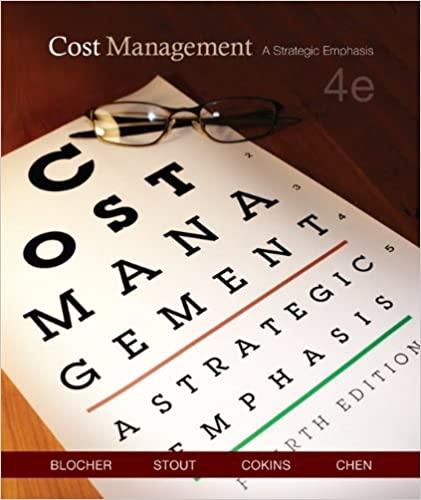Question
question 1. Who appoints a companys auditor? The Australian Securities and Investment Commission. The audit committee of the company. The members / shareholders of the
question 1. Who appoints a companys auditor?
- The Australian Securities and Investment Commission.
- The audit committee of the company.
- The members / shareholders of the company.
- The managing director of the company.
Question 2 What are the main reasons that Auditing Standards exist?
- they provide assurance of the minimum standards that should have been employed by the auditor in arriving at the opinion.
- they are necessary to maintain a cost-effective service.
- they will safeguard the auditor when they are sued.
- all of the above.
Question 3
Concerning errors, suspicious things/mistakes and illegal acts, the auditor should plan their audit with what sort of attitude?
- adversarial pursuit.
- cautious mistrust.
- seasoned pessimism.
- professional scepticism.
Question 4
Internal control has been recognised as important by management and auditors for many years.
Which of the following is a major factor contributing to this importance?
- The operations of the business entity have become so unwieldy that management must rely on the
chief financial officer to effectively control operations.
- Checks and reviews protect against employee collusion and reduce the chance of employee fraud.
- Internal control procedures must be utilised to maintain accurate accounting records.
- It is impractical for auditors to audit most companies within economic fee limitations without relying on the clients system of internal controls.
Question 5
Incompatible duties allow an irregularity to be perpetrated:
- and concealed through collusive actions.
- by two or more employees.
- and concealed by a single employee.
- by accounting personnel.
Question 6
When planning his/her audit the auditor assesses materiality at which two levels?
- the preliminary level and the final level.
- the company level and the divisional level.
- the financial report level and the account balance level.
- the account balance level and the transaction level.
Question 7
An auditor planned to place reliance on the clients internal controls but found that they were ineffective. What audit strategy should the auditor now pursue?
- the lower assessed level of control risk approach.
- the predominantly substantive approach.
- a combination of the lower assessed level of control risk approach and the predominantly
substantive approach.
- the analytical procedures approach.
Question 8
For every audit engagement, the specific audit objectives will normally be:
- the same for all clients in the same industry.
- equal to the number of categories of managements financial report assertions.
- similar for all clients in the same industry.
- tailored to fit the individual client.
Question 9
Which of the following audit tests would not be considered to be a substantive test?
- Tests of controls.
- Tests of details of balances.
- Analytical procedures.
- Tests of details of transactions.
Question 10
External audit relying on the work done by internal audit is:
- strictly prohibited by professional standards.
- acceptable whenever a client has employed them.
- acceptable if the auditor reviews and tests their work.
- acceptable if the auditor re-performs all their work.
Step by Step Solution
There are 3 Steps involved in it
Step: 1

Get Instant Access to Expert-Tailored Solutions
See step-by-step solutions with expert insights and AI powered tools for academic success
Step: 2

Step: 3

Ace Your Homework with AI
Get the answers you need in no time with our AI-driven, step-by-step assistance
Get Started


